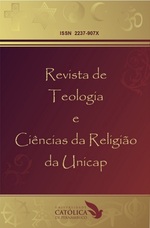BERGSON E O PENSAMENTO CHINÊS: A DURAÇÃO E O I CHING "Bergson and chinese thinking: the duration and the I Ching"
DOI:
https://doi.org/10.25247/paralellus.2013.v4n8.pp.%20335-346Palavras-chave:
Tempo. Mutação. Intuição. Imagens. Time. Mutation. Intuition. Images.Resumo
O presente trabalho tem por objetivo traçar um paralelo entre determinados aspectos da filosofia de Henri Bergson e o I Ching, livro-fundador da civilização chinesa. Apontaremos como dois registros de pensamento tão distantes no espaço e no tempo chegaram a conclusões ontológicas semelhantes sem, contudo, reduzir um ao outro, ou explicar um pensamento pelos conceitos do outro. Para tanto, utilizaremos os conceitos de duração de Bergson, pautando-nos principalmente em seus textos Introdução à metafísica (1903) e O pensamento e o movente (1934), e de mutação do I Ching. Respaldando-nos em estudiosos do I Ching e da sinologia, iremos desenvolver nossa hipótese do Ser manifesto no I Ching se dá de forma similar à substância bergsoniana definida como pura mudança e movimento. Tentaremos mostrar, ainda, a semelhança entre a visão bergsoniana da duração, a qual está para além de uma definição pela linguagem, e a constatação de Lao-Tsé de que “o Tao que pode ser dito não é o verdadeiro Tao”. Finalmente, nos propomos a indicar a resposta a este problema em Bergson e no I Ching, isto é, em que medida a intuição da duração do filósofo e sua comunicação – sua expressão através da linguagem –, que se dá por intermédio de imagens, tem um paralelo com a constituição imagética do I Ching com seus hexagramas.
Abstract
This paper aims to draw a parallel between certain aspects of the philosophy of Henri Bergson and the I Ching, book-founder of Chinese civilization. We will show as kinds of thought so far away in space and time came to similiar conclusions in a n ontological way without, however, reducing each other, or explain a thought by the concepts of another. To do so, we will use the concepts of duration of Bergson, focusing primarily on their texts introduction to metaphysics (1903) and the moving and thinking (1934), and mutation of the I Ching. Endorsing our writtings we found in I Ching scholars and sinology our basis and we will develop our ideia of being manifest in the I Ching to be similarly to bergsonian substance defined as pure change and movement. We will try to show the similarity between the bergsonian vision of duration, which is beyond a definition by the language and the words of Lao Tzu that "the Tao that can be told is not the true Tao". Finally, we propose to indicate the answer to this problem in Bergson and in the I Ching, that is, to what extent has the intuition of the duration of the philosopher and his communication – its expression through language – which takes place through images, has a parallel with the Constitution with its imagery of the I Ching hexagrams.
Downloads
Downloads
Publicado
Edição
Seção
Licença
A submissão de originais para a Paralellus implica a transferência, pelos autores, dos direitos de publicação eletrônica. Os direitos autorais para os artigos veiculados neste periódico são do autor; todavia, são da revista os direitos sobre a primeira publicação. Os autores somente poderão fazer uso dos mesmos resultados em outras publicações se indicarem, claramente, que a Paralellus foi o meio originalmente utilizado. Em decorrência do fato de ser a Paralellus uma revista de acesso público, é permitida a utilização gratuita dos artigos em aplicações educacionais e/ou científicas não comerciais, desde que respeitando-se a exigência de citação da fonte (Texto atualizado em 16-11-2020).




















